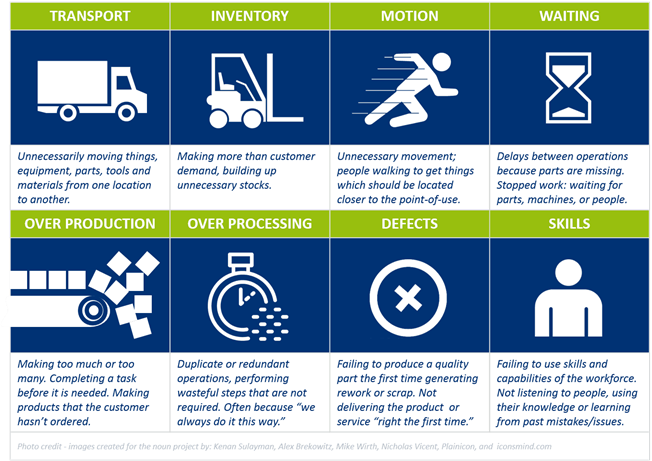Without operations, there would be no business, and yet, some businesses focus the least attention and resources here, until trouble hits. It's insane, right, given that it is through operations that a business serves its customers.
Often, successful operations are a product of infinitely titchy tweaks (continuous improvement) as opposed to the big bang type of changes (radical). Maybe that's why they often get forgotten once a business is set up and running.
Characteristics of successful operations
Successful operations are necessarily
- Efficient- producing with little effort or cost as is possible.
- Effective- add value to customers, i.e. produces what customers really want.
- Externally supportive- they provide a source of competitive advantage.
As businesses run, over time, one finds that slack builds into the operations, and they will no longer be as efficient nor as effective as they were before. They will, therefore, no longer be a source of competitive advantage.
Poor operations comprise rising production costs even as competitors are managing to contain theirs, increase in customers complaints regarding the product/service, for example, poor customer experience in the tech sector, and rises in defective products.
To avoid operations reaching this stage, continuously improving them is paramount. One easy framework a business can employ in ensuring that its operations are effective and efficient is LEAN MANAGEMENT.

What is Lean Management
Lean Management is a management practice based on the philosophy of continuously 'doing more with less.' One of the pillars on which Lean management is built on is eliminating waste, where waste is any activity that does not add value either to the business or the customers.
Why Lean Management
Many companies undertake lean first and foremost to survive, and secondarily to flourish. So if a business's operations are no longer a source of competitive advantage, or are sluggish, this is a tool they can use to improve them.
By analysing one's operations, one can tell which of these wastes are available in their operations and seek to eliminate or minimise them.
Though a very simple framework, Lean Management can bring enormous relief to operations, especially when one considers that there is an indirect correlation between reducing non-value adding activities and increasing customer value. So the benefits of implementing Lean management in business are immense.
Remember that Lean management is a continuous improvement tool, so you can analyse your operations at regular timeframes and reduce or eliminate waste in your operations.
Good luck turning your operations into a Lean machine!